#but that like adorable /p
Text



chappell roan via instagram
#has anyone seen the video of a little girl meeting her and being confused and then when chappell introduced herself the little baby was#like chappell woannn? i love you#it was adorable <3#p: chappell roan#*mine#mine: edits#photography!#chappell roan
914 notes
·
View notes
Text

persuasion skills 101
#ruby rose#weiss schnee#whiterose#white rose#rwby#my art#random silly doodle before class starts uwu#i just think weiss liking (being obsessed with) rubber duckies is adorable lmao#i've gotten sick a few days before so there's that as well#edit: fixed some of the proportions :p
735 notes
·
View notes
Text
True knowledge exists in knowing you know nothing || Dr. Ratio & Socrates
Okay, I legitimately laughed out loud writing that title, but listen. LISTEN.
Ratio's inspirations derive from many sources; from referencing Archimedes's brain-blast in the tub, to being doomed to have his head bonked by Newton's apple ad infinitum in his idle animation, to his ultimate line ('esse est percipi' / 'to be is to be perceived') a direct quote from Berkeley on Idealism - it's apparent that his design nods towards scholars across time periods rather than being a direct parallel to a singular academic.
Nevertheless, just for fun, I've been rotating Ratio and ancient greek philosophers around in my head and have had a great time chewing over how parallels Socrates in particular. I am in no way saying that Hoyo even thought about Socrates while they were designing Ratio, but I thought I'd share my thoughts. I think there are some worthwhile parallels to be drawn that touch on all aspects of Ratio's own philosophy regarding ignorance, the value of knowledge, and his deep appreciation of life. So, let's get into it.
Ratio is interested in humanity and curing 'ill minds with knowledge', that 'to turn a blind eye to the folly of others is not an etiquette, but a wicked worldly practice.' Ignorance is a disease - this is a concept that can be viewed through a Socratic lens. Socrates believed that that virtue and knowledge were impossible to separate from one another, and that virtue could be developed through acquiring knowledge and insight. If knowledge is virtue, then ignorance is vice. In Socrates's mind, no one would rationally choose to do something bad. People might choose to do bad things, but this is rooted in their own perception of the world - as in, someone would only choose to do something bad (for the world, or for themselves) because they believed (erroneously) that it was the right or good thing to do. To Socrates, the cure to this was knowledge: 'There are two kinds of disease of the soul, vice and ignorance.' & 'What does most harm in the world is not sinfulness but ignorance'.
To Ratio, 'If ignorance is an ailment, it is the duty of the scholars to weed it out and heal the universe'. He views his own ignorance as 'filth' that must be cleansed through methods such as reading. He also views knowledge as a method for humans to overcome their problems - 'Another day has passed. If your problem still hasn't been solved, is it possible the problem is you?' & 'You look distressed. Is something troubling you? if so, you can figure it out for yourself.' These statements sound harsh, but they also clue us into Ratio's philosophy - that through self-examination and improvement, one can overcome one's ailments.
Socrates was also known for being a trouble-maker, he was abrupt and tactless and did not care for someone's social standing nor decorum. He was also known for using what is now called the Socratic method, asking a series of questions that ultimately seek to show contradictions in the beliefs of those who posed them, and to move systematically towards a hypothesis free from contradiction. Socrates rarely made assertions himself - after all, he had no wisdom of his own. But he could interrogate others in order to expose their own foibles, much to the embarrassment and annoyance of those around him. He was once described as a 'gnat' chewing on the 'lazy horse of Athens', causing it to wake up and spring to life due to his persistent gnawing and prodding. Ratio also employs the Socratic method - 'I'm asking questions' - and also adopts sophist tactics such as playing devil's advocate and taking opposing sides (with both himself as seen a story quest, and with others as we see with his texts urging us to take up a side so he might debate us). Through questioning and interrogation, upsetting what we consider social convention and norms, we can dispel contradictions and thereby come closer to some form of truth.
To add to this - as highlighted in the replies below - Ratio’s skill ‘intellectual midwifery’ is a reference to the Socratic method. The idea being that Socrates helped those around him give birth to the knowledge that was already within them, rather than treating his students minds as empty vessels for him to fill with his own answers. Again this is beautifully echoed in Ratio - he doesn’t want to tell you how to live your life, he wants you to work out for yourself what it is you need, thus empowering oneself through self-examination and questioning.
Socrates did not believe in writing anything down. He believed that face-to-face communication was a far more effective way of communicating knowledge - which means, unfortunately, what we know of Socrates is primarily derived from secondary sources. Much of what we know about him today comes from Plato's dialogues, and Plato was known for liberally exercising artistic license.
Although Ratio is not dead, I find it interesting that his character story is told exclusively through secondary sources. To quote - '…There are no less than eight documentaries detailing his legendary exploits, and over a dozen memoirs about him. However, despite the plethora of commentaries, none of them seems to provide a compelling perspective.' It's as though there are no surviving fragments penned by Ratio's hand and all we have to go on is through the lenses of other people. This challenges us, perhaps, to try to think about our own interpretation of Ratio since secondary sources cannot be taken as a wholly unbiased account - and once again employing the Socratic method and empowering the reader to come to their own interpretation.
While Socrates left no writing behind, he was interested in spreading knowledge. Socrates spent most of his life in Athens, a city that was, during his lifetime (~470-399 BC), a hotpot of scholars, wisemen and philosophers. Athena, the Greek god of wisdom, was named after the city - her symbol the owl that is also appropriately perched on Ratio’s shoulder. Also in Athens at this time where the sophists. The sophists were a class of intellectuals who were known to teach courses in various subjects - but often for a high fee, and generally centred around the idea that persuasion and the use of knowledge as a tool was more important than wisdom or truth itself. There's some debate about whether Socrates could be characterised as a sophist himself, but, crucially, he is characterised as refusing to take payment for his teachings. He was born a plebeian (perhaps you might describe it as a mundane background.) He was known to dress in rags and go barefoot, speaking to and (often antagonising) people from all walks of life, preferring the marketplace as a center of debate than palaces or courtrooms. I can't help but think of the sophists as similar to the genius society (or at least Ratio's depiction of them in contrast to himself), cooped up in ivory towers and gatekeeping knowledge to the most privileged. He doubts if Herta's talent is always helpful to others, he compares Screwllum to a 'monarch'. Then again, the sophists may in fact be a bit of a parallel to the Intelligentsia Guild - from Ratio, 'when someone is willing to listen to knowledge that is being disseminated and circulated, a price is created'.
Socrates (or at least the Platonic depiction of Socrates) was at one time declared the wisest man in Athens by the Oracle of Delphi. Socrates balks at this assertion - how can he possibly be the wisest man in Athens when he in fact knows nothing at all? This was not a claim made of modesty - he truly believed that he had no wisdom, that he was unsure what 'wisdom' itself even was. Ultimately, Socrates concludes that the only way that the Oracle could be correct is that by actually acknowledging that he knows nothing he paradoxically is the wisest man in Athens. All wisdom, therefore, is rooted in wondering, with wondering only possible if one is open to admitting one's own ignorance.
What I love about all of this in relation to Ratio is that Ratio styles himself as a mundanite. The Intelligensia Guild advocates that 'all knowledge must be circulated like currency' and accepts 'all beings… who seek to learn'. Ratio has no time for the satisfied self-styling of intellectualism, he himself states that 'to speak knowledge, we must first make people realise their own folly.' No one is above criticism in this regard, even himself - again, to quote 'Whenever someone agrees with me, I feel like I must be wrong.' Again, I feel as though he would resonate with Socrates here: 'Smart people learn from everything and everyone, average people from their experiences, and stupid people already have all the answers'. With Aventurine, he is quick to mock his appearance as over-the-top and vapid - once again making it clear his distate for vanity and hollow displays of showiness (albeit he may have been acting for Sunday's sake here. Also, no comment about this coming from a man who runs around in a toga, lmao)
Equally, with Aventurine, it is clear that Ratio is willing to learn from him - he apologises when he offends, he abhors his methodology and yet he still relies upon it and trusts in Aventurine's plan, he is drawn to him in some ways precisely because he is so different to himself. Aventurine (at least styles himself) as impulsive to Ratio's slow and steady methodology, Aventurine whose learning has been entirely self-made vs Ratio who has spent his life in classrooms, Ratio who scoffs at Aventurine's favourite games of chance yet adds slot machines to his simulated universe.
And to Socrates, the experience of aporia – in all of its discomfort and disruption – is the very catalyst of wonder, and that wonder was not just the root of wisdom but also the way to live a good and happy life. There is something beautiful in this to me, and this extends to Ratio. Ratio fundamentally cares about life. For all his brashness, his lashing out against 'idiots', his harsh demeanour - he wants people to live good lives, he wants to contribute to the good of humanity - all people, even those he is annoyed by, he cares so profoundly and absolutely about life. The entire reason why he is obsessed with wisdom and learning is not to exalt or elevate himself, not as some kind of ritualistic expression of piety towards a deity, but it is instead an expression of devotion towards life itself. Ratio has a strict work out routine not so that he can show off his body, but because living healthily is living well and working out is a component of that. Even the way he fusses and worries about Aventurine, someone he is pointedly irritated by, reveals how deeply his care runs. So so much of his character is centered on caring for life, even if it is not immediately obvious.
Finally, I'd like to highlight some ways in which Ratio is not like Socrates. First of all, Socrates was repeatedly described as 'ugly' by fellow philosophers Plato and Xenophon - this is contrast to Ratio being repeatedly described as 'handsome'. This is an interesting subversion to me (albeit likely an indulgent one) as in both cases both men attempt to distance their physical appearance from the weight of their words. Ratio wears the bust for many reasons, but way to view it is that he is attempting to stop his appearance from bearing any influence in the subject of debate.
Socrates was also said to be blessed by a divine touch, and as we know, this is something that agonises Ratio as Nous has not yet turned THEIR gaze towards him.
Lastly, Ratio has - thankfully - not yet been ordered by the state to drink hemlock for all his trouble-making and blustering. Though perhaps he may someday be put on trial by the IPC if the theories that he is working alongside Aventurine to undermine the corporation are true - we will just have to wait and see.
Thanks for reading my little ramble. I'd be super interested in anyone's thoughts if they'd like to share, but regardless, I'll leave off on some of my favourite wee quotes from the Rat man:
'Even a life marked by failure is a life worth living - it is only in moments of solitude and despair, when help is absent, that fools grasp how to pick themselves up.'
'Do stay alive. I wish you the best of luck.'
#dr ratio#ratio#aventurine#hsr#honkai star rail#my witterings#i love the rat man so much idk#much of the information i describe about Socrates comes from the podcast History of Philosophy without the Gaps#which I highly recommend if this is your kind of thing lol#but mostly I just wanted to have fun spinning my hyperfixation around lol#Also I make a few declarative statements throughout this but know that I do not claim to be a scholar of greek philosophy lol#please check the verasity for yourselves before relying on what I have to say#for I know nothing u see u see? :P#also I just wanna add in that I do NOT think Ratio is a perfect human being#ratio can be hypocritical and cruel and ignorant just like the rest of us#but I adore that too as afterall he is also an expression of humanity#with all its earthy faults
155 notes
·
View notes
Text
Thank you to whoever decided that the RTTE outro should look like that and also whoever drew it bc it's the light of my life
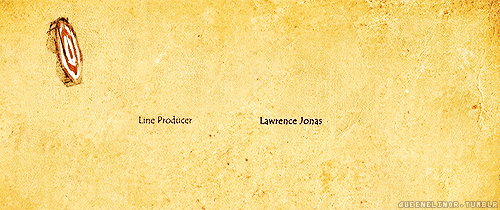
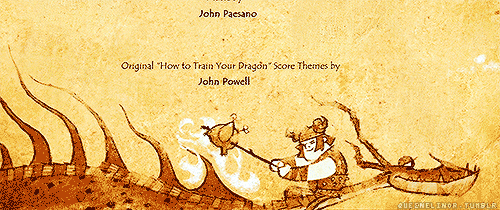
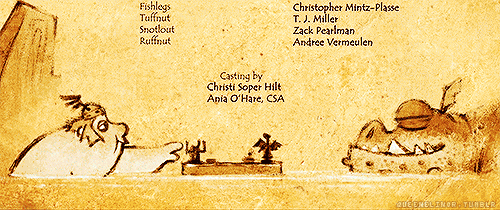

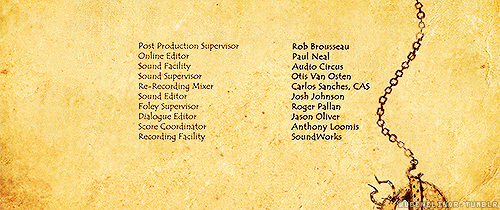
LOOK AT THEM
LOOK AT THEM
#the BEST way to end an episode of anything#w cute little animations of the characters#i love astrid's it looks so cool#and snotfang and fishmeat (not the baby lol) hanging out together is ADORABLE#i love the twins just being the twins (and the addition of chicken hopping around between them)#and hiccup's gets cut off before i'm p sure toothless pops up to pull him down and that's so CUTE i love them sm#I love how stylized they are too#i think about these on like#a daily basis#hiccup horrendous haddock iii#hiccup haddock#hiccup#astrid hofferson#astrid#snotlout jorgenson#snotlout#fishlegs ingerman#fishlegs#ruffnut thorston#ruffnut#tuffnut thorston#tuffnut#how to train your dragon#race to the edge#httyd#rtte#rosie's httyd brainrot
397 notes
·
View notes
Text
you're an angel, i'm a dog and so on...
Song : I'm Your Man by Mitski
#crime and punishment#преступление и наказание#rodion romanovich raskolnikov#dmitri prokofich razumikhin#razumikhin#rodya raskolnikov#fyodor dostoevsky#ruslit#dostoevksy#my first time doing something like this and i really like how it turned out#i adore them your honor#they consume me#posting C&P out of nowhere but omg this book barged into my life and now i'm stuck in dosto hell#how do you live after this#would love to post more fanart of it but that would mean defeating artblock and that b is strong
89 notes
·
View notes
Text
She didn’t want to leave Maxie😭😭😭😭😭😭😭😭😭😭😭😭😭😭😭😭😭😭😭😭😭😭😭😭😭😭😭😭😭😭

#like P absolutely same girlie no way would I want to leave Max#but he was adorable with her😭#literally so soft I cannot😭😭#girl dad Max is my favorite#max verstappen#rambles#f1#formula 1#red bull racing
124 notes
·
View notes
Text

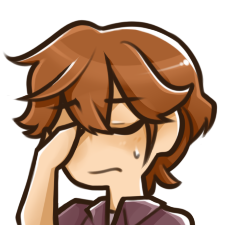

idk if it's a fun fact or not but! Right's favorite color is green. He never wears green but it's his favorite color. then I've been working on silly emotes for my OCs and they're "disappointeddad" and "tryme".
(Also there is an AU where these two are knights along with Paul and Evelyn while Brent/Caspian/Atticus are princes. Chris is basically Caspian's personal guard while Right just runs around trying to do everything to stay busy even when not on duty which stresses Chris out. But since he's kinda busy with the crown prince it defaults to Paul having to babysit Right.)
#my characters#oops i fell in love#genuinely shocked ocs has such a high percentage on the poll i did NOT expect that#bu this isn't even due to that it is just starting to get stormy and im just.... gonna have to shut down soon#and was craving chris today#so he gets an emote and also another doodle with right#bc i dont draw them together enough and that right there was the closest he had to a friend in his mind before brent#like chris was SO proud to be the one right would vent to bc that meant he was trusted AND not the reason right is angry#then hes like oops gotta swing by work on my off day and this is a problem because dottr#so he brings his SWEET LIL GIRL into work who immediately decides right is the nicest person ever and she loves him#and chris is like please anyone but him#but alas he loves his daughter and he adores his work children (p much everyone else) so he allows angel#also fwiw karen is not actually as much of a physical menace as it might seem#like sure she craves the murder as a warlock in a fictional setting but she honestly is v gentle#she might push and shove at paul some times but thats bc thats basically family and then#she just cuddles up next to him when sleepy at a bar bc they always sit next to each other#and it shocks no one to see her falling asleep on him and she is just a usually patient person !#but come on right is a menace verbally and she can only put up with so much until he stops being such a dick
35 notes
·
View notes
Text

Just finished another INCREDIBLE Bloodweave fic by Linnetagain:
What Fools These Mortals Be
Please go read it.
I laughed, I cried, I HAD TO DRAW. 😭 Thank you so much Linnetagain, your fics give me liiiiife.
Speedpaint:
youtube
#bloodweave#astarion ancunin#Astarion#Gale Dekarios#Gale of Waterdeep#Linnetagain#Fanfic#Fanart#Youtube#speedpaint#baldur's gate 3#bg3#nabexis art#my art#screaming weeping crying#I love P&P so much and Gale is SO DARCY CODED OMFG#but also the Midsummer Nights Dream part is DEVASTATING I LOVE IT#I had to redraw Astarion's face SO MANY TIMES because I kept not liking how he looked#And of course the first character I had to draw was THE HOUSE#I adore that The House is a character it's so good
88 notes
·
View notes
Text
Penciled Lines
(Cross-posted on ao3, if you prefer to read it there. Reblogs still appreciated!)
Missa wakes up, and he thinks he might be doomed. This doesn’t scare him nearly as much as it should.
Missa is awake early—by his own metric, anyway. His nocturnal nature causes “early” for him to mean “early night” and not “early morning.” Regardless, “early” means that Philza is not asleep yet, still going through his nightly rituals. “Early” means that Philza is sitting up in (his? their?) the bed, pillows propped up behind him, notebook in his lap, sketching away.
And when Missa wakes up to the soft scritch-scratch of a charcoal pencil on textured paper, his forehead just so happens to be brushing Philza’s hip.
Missa can hardly breathe.
Oh no.
He knows that if he gives any indication that he is awake, Philza will stop sketching, close his notebook, shift himself over until he is politely seated on his side of the bed, and greet Missa with a friendly smile. Philza has done it before, when Missa wakes up early. That’s how Missa knows he’ll do it again.
Thus, Missa can hardly breathe—his breaths have to be the slow in-out of sleep. He can’t so much as twitch, either. He has to keep quiet and play dead or else he’ll be found out. Seen. Caught living the lie.
“Husband,” Philza calls him. They’re not married. They share a bed. They’re hardly ever in it at the same time. They have a son and a daughter. Neither of them know Missa very well. Philza has had an extra set of armor and a skull on his backpack for months, waiting for Missa. Missa doesn’t even know Philza’s last name.
Philza is a good man and a good friend—and Missa doesn't deserve him. Still, he takes what he can get. Curls around it. Hoarding every innocent kindness Philza extends like a starving creature: the generosity of a backpack fully stocked with equipment; the trust Philza places in Missa to watch the kids when he’s asleep; and now, the courtesy of not moving his hip from Missa’s forehead to ensure his “sleeping” isn’t disturbed. Missa clutches all of these little offerings in his greedy claws and hugs them into his chest, even as the guilt eats away at him.
Because, regardless of the lack of mutual feeling, he loves Philza. He loves him so, so much, and that is why he is doomed. He can’t afford to lose what little he has. He can’t cross that line.
So Missa lies beside Philza, forehead pressed against Philza’s hip, pretending to sleep so he can imagine that they’re not just lying in bed together, but lying in bed, together; and later, when Missa truly wakes, he will sit on his side of the bed and look at Philza’s face soft with sleep and think about how lucky he is that he still has a side-of-the-bed to begin with.
Missa doesn’t mean to drift off. When it starts to happen, he’s hopelessly torn between shaking himself awake and thus giving himself away, or remaining how he is, silently fending off the inevitable. In the end, Missa clings to that scritch-scratch sound of Philza’s pencil on the paper for as long as he can before the fog at last pulls him under.
Eventually, he dreams. In fact, he dreams of the calloused fingers he dreams of every night, hands like his own, an artist of Death, cradling and shading the contours of his face—a softness dashing charcoal across his jaw, and over his cheekbones, and perhaps on his lips, too, if he’s lucky. Defining every edge of him.
~*~
A deep sigh. Phil stops sketching as Missa shifts in his sleep. He tilts his head up so that the tip of his nose is now just nearly brushing against Phil’s hip. The motion disturbs the wild splay of his dark hair, revealing more of his face: eyelashes, cheeks, warmth. Tender blush of something Stygian and otherworldly. New.
Phil’s lips tilt upwards. He turns to a fresh page, and he starts again.
#qsmp#pissa#qsmpshipping#qsmp missa#qsmp philza#i hesitate to put main character tags bc it's shipping content but i think we're all p much okay with that?? we chill??? we chill thumbsup#my fics#ficlet#anyway would you believe me if i told you this took me a week to write. hhourgh.#i'll prolly make small edits as time goes by if i dont scrap this version entirely.#i really like it rn but we'll see how i feel abt it in like a couple hours or a day. the sheer number of times ive rewritten this hhhhh.#this little character/relationship study is primarily for me to try to work them out in my head.#so if this doesnt quite hit the exact vibe you know why.#im still getting acquainted w missa's character but i gotta start somewhere ya know#i didnt actually get to explore missa's feelings of inferiority as much as i wanted to but thats bc i found trying to tackle that As Well-#-as everything else saddled the fic/setting w too many Things and made it cumbersome and muddied the story being told.#so another time perhaps.#anyway i adore them. beloveds.
175 notes
·
View notes
Text

'The sun is shining on me'
A quick messy silver drawing 'based' on Ferry's 'The world is shining on me', which is suchhh a good song----
(alt(?) vers under read more)



I messed with the hues, and these were ones I thought looked fun------! which is your favourite >_>?
#twst#twisted wonderland#silver twst#twst silver#twisted wonderland silver#silver twisted wonderland#i. i get it now - tagging him is a p a i n-#silver vanrouge#he deserves his paps last name >:[#ram's art#uhhhhh i was gonna draw someone like ace or kalim b u t#I could just imagine silver as the songs vibe more lol#which. is funny since i dont really like diasomnia alllll that much-?#well- i like them but the least outta every dorm - you know?#(this excludes sebek - i like sebek so much he's SUCH a funny annoying guy i adore every second he's on screen---)#ANYWAYS um- first time drawing the sleepy boy haha-#why. is his hair actually a pain.....???????? like>? it's so simple????? but that's actually so annoying?????#i added more messiness just because it made it more visually appealing to my eyes lol#also- i didnt bother doing too much detail since this was a quick doodle while i had free time- but----#the only flowers that had more 'detail' were ones that appeared when i researched flowers to do with sleep-#i. cant remember them though - i think orchids were one but i know nothing about flowers lol
139 notes
·
View notes
Text
my gma told me that my mom used to wake up, eat breakfast, then study for 12 hours straight. every fuckin day. and my gpa would bring her food and tell her to take breaks bc of how immersed she was. she’s literally my role model forever
#I want to be on that level of sheer focus/passion w everything I do#this is what I remind myself of whenever I’m lazy or I don’t feel like putting in the hours. like my mon did THAT every day#I rly am intrinsically motivated bc of her and she also showed me that you truly can love science even in a broken education system#ofc being raised in her image did predispose me to science but I’m also so grateful it’s an organic love#and that I’m not doing it for something as dumb as prestige or money. like I genuinely adore it#and I was never raised in a gIrL MaTh household like my mom made it clear math was very fun to me since I was like 2#and I think that influenced my confidence in pursuing stem/medicine bc I grew up watching my mom solve differential equations for fun#I also love how suffused she was in her studies. that must’ve felt so rewarding. I strive to be that way too#she also taught me it’s possible to be smart AND pretty and that has been the motto my whole life#I luv my mom post no. 8272662 I just had to say it#p
78 notes
·
View notes
Text
jump scared by the 4th Doctor saying "well" with an uncanny intonation to how 10 says it, except I thought that was just a David Tennant-ism considering he does it in everything eventually, like, that CAN'T have started with him copying this cadence and absorbing it into his being? Right?
#I'm a season in on Baker and I understand now#his entire presence is in his voice which is of course impossible to see in random pictures and such#INCREDIBLY deep and rich voice#and while his performance is to me otherwise probably upper-middle-tier so far#the writing has taken a huge jump in quality even while staying in the serial format which sets some pretty dreadful pacing limitations#that have so far been the bane of all 12 seasons I've watched#what with demanding a silly fake cliffhanger 3-5 times a story and thus getting everyone kidnapped and imperilled way beyond common sense#the writing is either good enough to compensate#or they're going less out of their way to move everyone around like chess pieces to be in peril on the dot#and after binging this much of it even one smooth episode transition per serial is a relief#and then of course Baker is delivering all the lines with that sonorous voice and smoothing it all over further#I can see why people would advise starting with Baker simply because the episodes feel more digestible and easy to chew#of course having started at the start#the improvement scale I'm working on is rather warped :P#several B&W era Who I was fully showing up For Science with an anthropology hat on to study 1960s britain#because it was all such a hurdle#this is just like. Acceptable if adorably janky TV by now :P#doctor who
31 notes
·
View notes
Note
So I decided to join that silly twitter trend and I want to share my creation with you 💖

(RIP El Cool Pee)
JGJHIOHKFJG GOLD
Sprinkle water on him
#aguhaugh this ask made me so happy tyyy 🥺🥺🥺#I adore this#MJ here is sooo#twirls hair#lowkey looks like a dino I dunno why#maybe because of hair#and also Cool P with praise kink???????#adding one more thing to live for#eating them
31 notes
·
View notes
Text

Just finished playing Symptoms of Deceit and when I saw Nalis' blank expression sprite it reminded me so much of Angel Cookie's deadpan look that I just had to draw Nalis with that expression lolololol plus I did get his ending so... :3
Hope u like this mini doodle of this cute cuttlefish <3
More rambling under the cut~!
AAAAA- as I was saying.... The game.... It was amazing?!?!? I HAD AN AMAZING TIME PLAYING IT!!!! and their all so pretty and ausbusbsus- I wish tremo was one of the LIs maybe as a secret route :333? She's so adorable...!!! Actually, ALL OF THEM ARE ADORABLE!!
Plus omg... They're associated with animals...?!?!? AAAAAA I can finally use my (still unnamed) orca oc as the mc of this game 🥹 so happy! Can't wait to try and draw my fav moments ><
MY GOSHHHH, I can't wait for the full ver or demo of this game it's so goodddddd yum yumyum gon eat the crumbs up 🍴🍴
Also this was the expression that inspired this drawing 😆


#my art#symptoms of deceit#symptoms of deceit vn#IMMA UNLOCK ALL OF THE ENDINGS!!!#Especially thaumo's!!!!#Hes so clingy and cute i love him so muchhhhh <333333#And his cute blue blush is just so adorable 🥺🥺🥺🥺🥺🥺#I wanna squish his flushed cheeks#Or maybe bite them like theyre marshmallows :P#Also im sorry i dont know how to draw a background 😔😔😔😔😔😔😔
85 notes
·
View notes
Text
How am I meant to move on from Max and P’s very clear bed time routine of “good night P, see you tomorrow” and lil cheek kissies. How.
#he is a girl dad. he is meant for daughters.#you can tell he adores her so much#and she doesn’t have an agenda!!!#she just wanted her bed time KISSIE!!!!!#every interaction we’ve seen#everything that’s posted#his BDAY CAKE#they are a FAMILY. whether y’all like it or not.#he loves his girls#and he’ll never make p feel anything but love#the fact that she isn’t his doesn’t matter lmao#but y’all continue being miserable couldn’t be me xx
93 notes
·
View notes
Text
hiiiiiiiiiiiiiiii <333

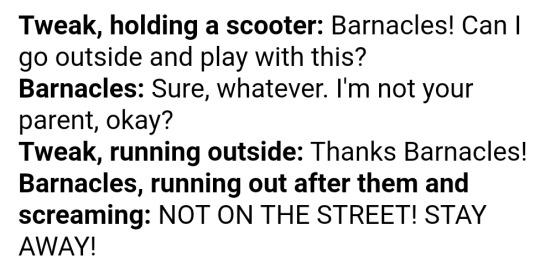
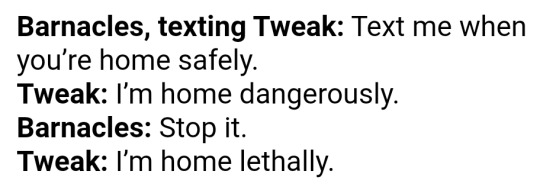
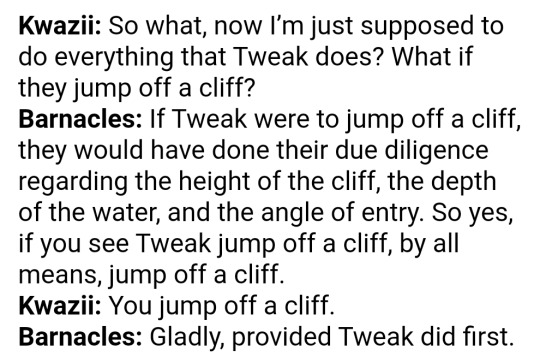

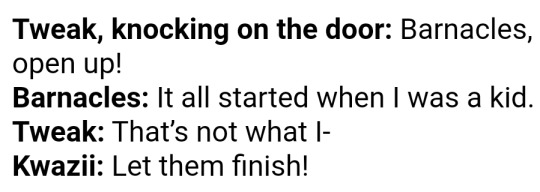



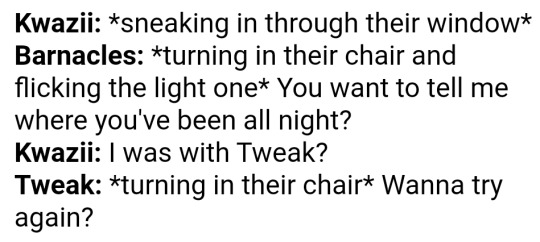
#octonauts#captain barnacles#tweak bunny octonauts#kwazii#incorrect qoutes#bestiesss#u remember how i mentioned the chinese music videos w barnacles and tweak doing Bestie Things™? like foraging mushrooms n gardening#those are actually part of a very short “musical series” (??) of a bunch of videos like that#and in almost all of them a reacurring theme is barnacles‚ tweak‚ and kwazii living together in some cute lil house doing domestic chores#and. i'm a little obsessed with it hsdghjfsk like it's weird but also strangely adorable xD#anyway. i love them /p#brot3 real#please don't tag as ship ❌
162 notes
·
View notes